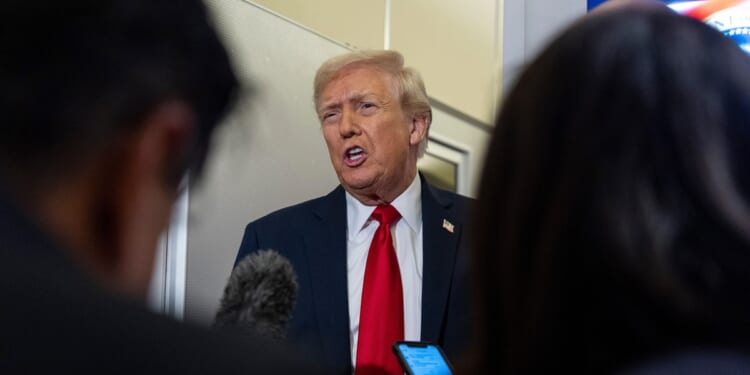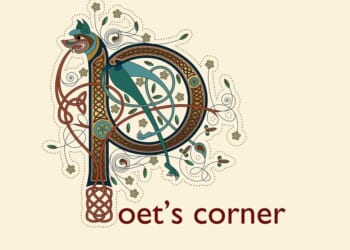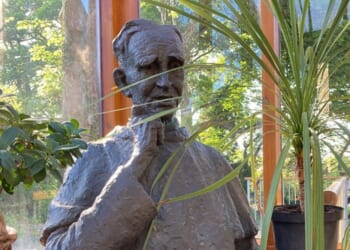FROM the sacred to the profane. After last Sunday’s sermon on Christ the King, I thought about the millions of Americans who took to the streets last month in “No King’” protests over President Trump’s “increasing authoritarian excesses and corruption”. He has openly declared that he would like to be President for a third term, in violation of the constitution of the United States. He is, critics say, “already acting like a monarch”.
It is, of course, a mistake to believe anything that President Trump says. But his actions tell a clear story. He has expanded presidential power, using executive orders to destabilise federal government, gerrymandering boundaries, and undermining independent bodies designed to check and balance his power. He has pardoned friends and persecuted opponents. President Trump’s model of kingship is almost the complete antithesis of the self-sacrificial Servant-King whom we encounter in the Gospels.
His behaviour recently reached new lows. He gave an extravagant welcome to the White House for the Saudi Crown Prince Mohammed bin Salman — a man dubbed Mr Bone Saw after US intelligence agencies concluded that he orchestrated the murder of a dissident Washington Post journalist whose body was dismembered with such an implement. President Trump brushed aside reporters’ questions on this, asserting that a $1-trillion Saudi investment in the US would bring Americans “lots of jobs”.
Then came his “peace plan” for Ukraine, which was initially so loaded towards the demands of the war criminal Vladimir Putin that the White House was forced to deny that it had been written in Moscow. It was merely “based on input from the Russian side”, Trump staff said. But analysts suggested that the document was “not originally written in English”, pointing to transliteration errors, Russian political vocabulary, and phrasing that is commonly used by Moscow.
President Trump’s 28-point peace plan was perhaps the most flagrant act of appeasement since Neville Chamberlain waved his letter from Adolf Hitler in 1938. Read the detail and you see why.
It suggested that $100 billion of frozen Russian assets would be invested in rebuilding Ukraine’s shattered economy — and that half of the profits would go to US businesses. President Trump’s proposed Ukraine peace deal was, in fact, a juicy business opportunity for the US. As with Mr Bone Saw, all that matters is money. All this, the Financial Times said, has finally laid bare the true nature of “Trump’s worldview: cynical, self-interested and money-grabbing”.
It may be that President Trump’s sloppily drafted and lopsided plan was never a serious document, but, rather, an opening gambit to force Ukrainian and European leaders to come up with an alternative — that Moscow will now unpick or reject. Either way, the US President’s venality is revealing. If, for President Putin, the war on Ukraine is all about territory, for President Trump it is all about money.
For more than a millennium, Christus vincit, Christus regnat, Christus imperat has been sung at papal and other coronations. But it was only 100 years ago that the feast of Christ the King was inaugurated by Pope Pius XI to celebrate “a dominion not seized by violence nor usurped”. He was writing at a time of growing nationalism, when fascism was on the rise. If history is not to repeat itself, Europe must maintain its stand of principled solidarity with Ukraine.

















